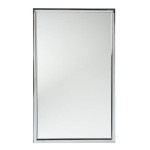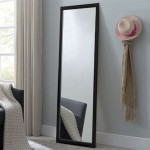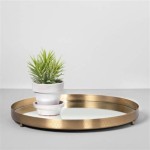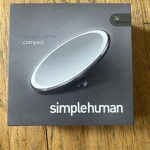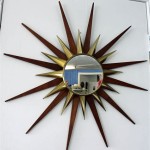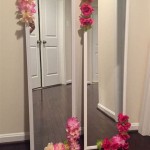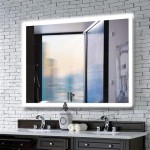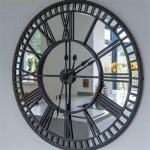Antique Dresser with Mirror: A Guide to Choosing, Caring, and Decorating
Antique dressers with mirrors, often called vanities, offer a blend of functionality and timeless elegance. They serve as practical storage solutions while adding a touch of history and sophistication to any bedroom. Understanding the nuances of these pieces, from their historical context to their care and placement, can help buyers make informed decisions and appreciate their enduring value.
Key Features of Antique Dressers with Mirrors
Several key features distinguish antique dressers with mirrors. Recognizing these characteristics helps assess a piece's authenticity, period, and overall quality.
1. Wood Type: Antique dressers often feature solid wood construction, such as mahogany, walnut, or oak. The wood type influences the dresser's durability, appearance, and value.
2. Hardware: Original hardware, including drawer pulls, knobs, and keyhole escutcheons, contributes significantly to a dresser’s authenticity. Look for period-appropriate materials like brass, porcelain, or wood.
3. Mirror Attachment: The way the mirror attaches to the dresser offers clues about its age and style. Some mirrors are attached directly to the dresser, while others sit atop a separate stand or frame.
4. Dovetail Joints: Traditional joinery techniques, like dovetail joints, are a hallmark of quality craftsmanship in antique furniture. Examine the drawers for these interlocking wood joints.
5. Construction Style: Different periods and styles boast distinctive construction details. Victorian dressers might feature ornate carvings and embellishments, while simpler lines characterize Shaker or Arts and Crafts pieces.
Identifying Different Styles and Eras
Antique dressers with mirrors span various styles and eras. Familiarizing oneself with these distinctions aids in identifying a piece's origins and appreciating its unique characteristics.
Victorian Dressers
Victorian-era dressers, popular from the mid-19th to early 20th centuries, are often elaborate, featuring intricate carvings, dark wood finishes, and marble tops.
Art Deco Dressers
Art Deco dressers, prevalent in the 1920s and 1930s, showcase geometric shapes, streamlined designs, and materials like chrome and Bakelite.
Mid-Century Modern Dressers
Mid-Century Modern dressers, popular from the 1940s to the 1960s, emphasize functionality and clean lines, often featuring light-colored woods and tapered legs.
Factors Affecting Value and Price
Several factors influence the value and price of an antique dresser with a mirror. Understanding these factors helps buyers make informed purchases and assess a piece's potential investment value.
Rarity and Condition
Rarity and condition significantly impact value. Dressers in excellent original condition, especially from less common makers or styles, command higher prices.
Provenance and Maker
Knowing a dresser's provenance, or history of ownership, can add to its value, particularly if it can be traced back to a notable individual or family. The maker’s reputation also plays a role, with pieces from renowned furniture makers often fetching premium prices.
Market Trends
Current market trends influence antique furniture prices. Styles that are currently in high demand will generally command higher prices than those less sought after.
Caring for Your Antique Dresser and Mirror
Proper care preserves the beauty and value of an antique dresser with a mirror. Regular cleaning and maintenance are crucial for protecting these cherished pieces.
Cleaning
Clean the dresser regularly with a soft, damp cloth, avoiding harsh chemicals or abrasive cleaners that can damage the finish. Use a specialized wood cleaner when necessary, following the manufacturer's instructions.
Polishing
Periodically polish the wood surfaces with a high-quality furniture polish to maintain their luster and protect them from moisture. Avoid silicone-based polishes, which can build up over time and damage the finish.
Mirror Care
Clean the mirror with a gentle glass cleaner and a soft cloth. Avoid spraying cleaner directly onto the mirror, as it could seep into the frame and damage the wood.
Environmental Factors
Avoid placing the dresser in direct sunlight or near heat sources, which can cause fading and warping. Maintain a stable humidity level to prevent cracking and other damage.
Placement and Decorating Ideas
Thoughtful placement enhances the visual impact of an antique dresser with a mirror. Consider these decorating ideas to create a cohesive and stylish bedroom.
Focal Point
Position the dresser as a focal point in the room, perhaps opposite the bed or centered on a prominent wall. The mirror can help reflect light and create a sense of spaciousness.
Accessorizing
Accessorize the dresser top with carefully chosen items, such as lamps, decorative boxes, or framed photographs. Keep the arrangement balanced and avoid overcrowding.
Complementary Decor
Choose bedding and other decor that complements the style of the dresser. Consider the color palette and overall aesthetic of the room when making selections.
By understanding the history, care, and decorative possibilities of antique dressers with mirrors, one can truly appreciate these pieces as both functional furniture and works of art.

Small Antique Dresser With Mirror Midtown Furniture

Before And After Antique Dresser With Mirror

Early 1900s Antique Oak Dresser With Mirror Bedroom Furniture Shabby Chic

Antique Dresser With Marble Top Mirror 48 X 20 80 H Castle Rock Home Garden

Vintage Victorian Eastlake Marble Top Wood Dresser With Ornate Mirror Antique Foyer

024 Antique Dresser Late 1800 S 1900 Dark Oak Mirror Dove Tail Gentleman

Malcolm Souter Furniture Antique Dresser With Mirror My Stuff S Content And Estate Specialists

Pretty In Prelude Antique Dresser With Mirror Tuesday S Treasures Funcycled

Antique Solid Wood Dresser With Detachable Swivel Mirror Original Hardware

Dresser With Mirror Antique Victorian Furniture

